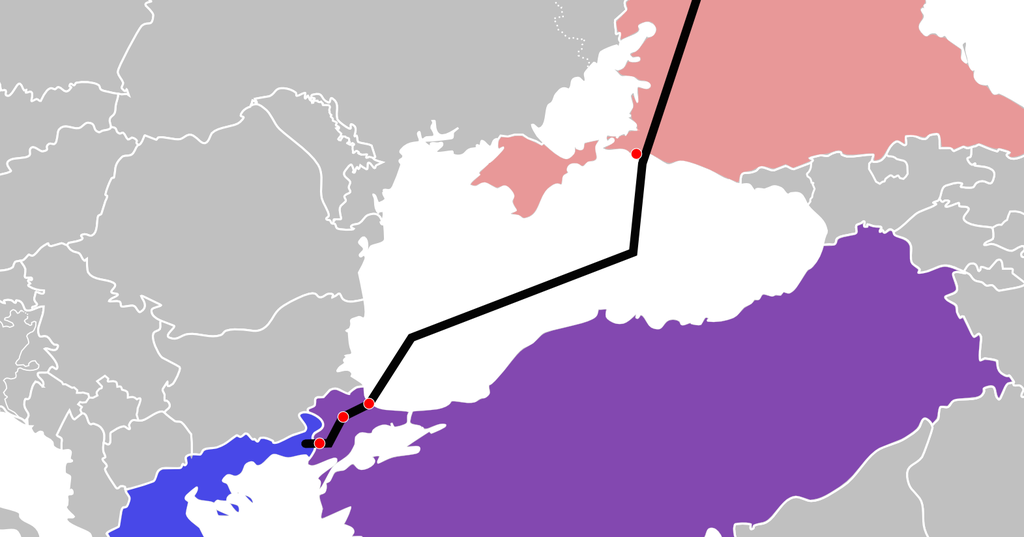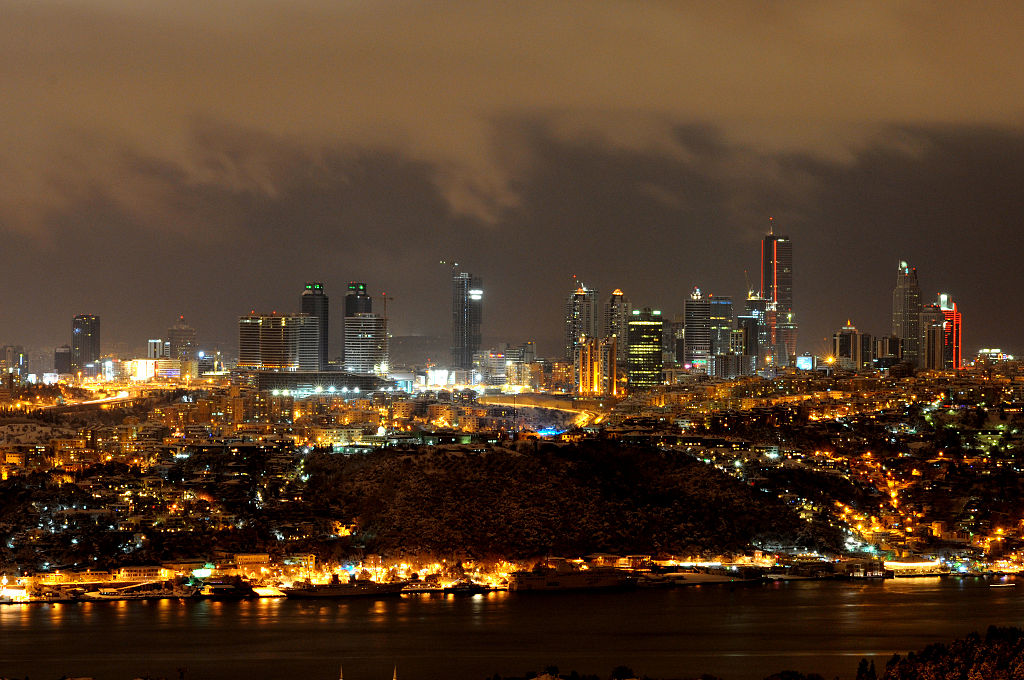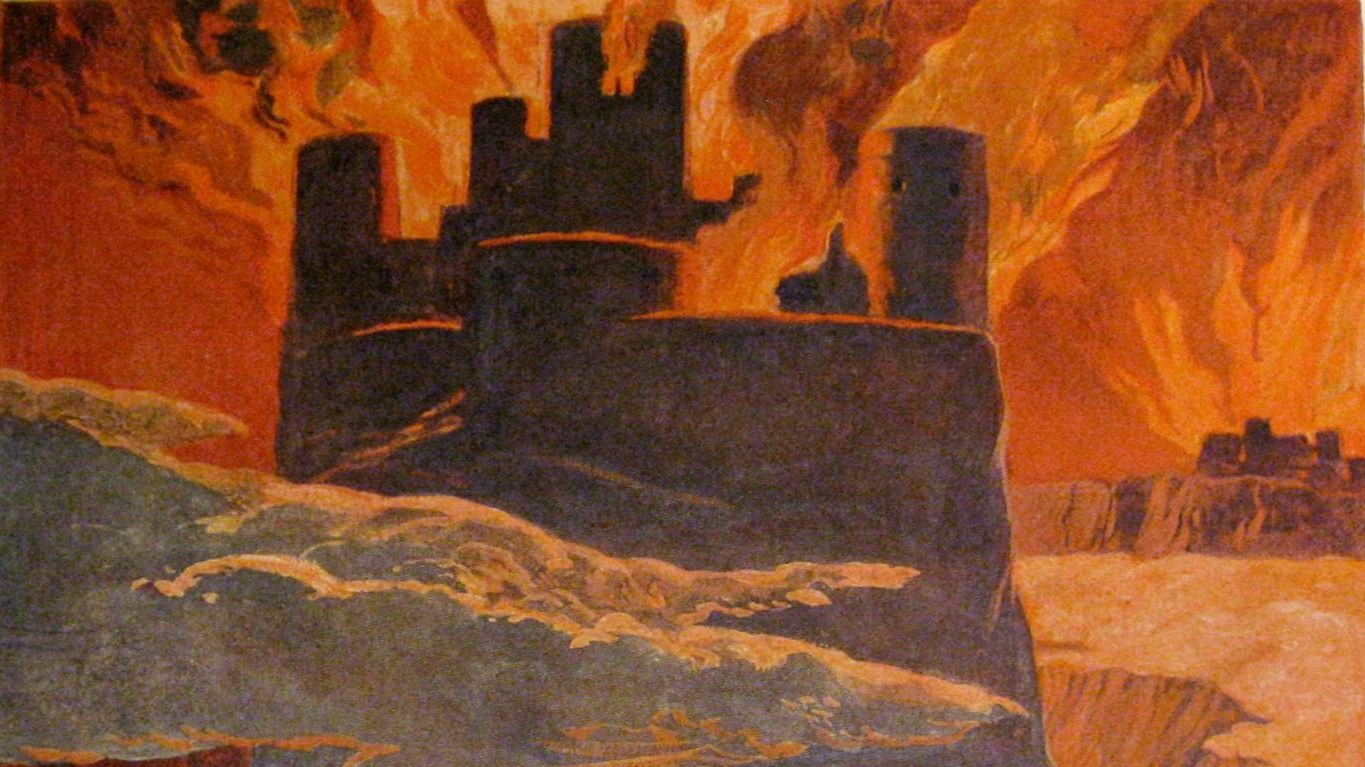From an economic point of view, the EU has lost much as a result of Russia’s abandonment of “South stream”
How should the Gulf Cooperation Council countries react to the attacks of the Egyptian Muslim Brotherhood (Organization banned in Russia) supported by Qatar at the “Arab Gas Pipeline” facilities when these attacks interrupt the export of gas to Jordan? They can consider these terrorist acts only as an obvious undermining of the “Arab solidarity” by Qatar. After all, such attacks did not only create problems for the Arab consumers of the gas, but also deprived Egypt of substantial export revenues.
That is why Saudi Arabia and its Arab allies have been demanding for several years that Qatar stop the Egyptian “gas terrorism”, and why they do not accept the explanation that this terrorism is supposedly directed against Israel.
The reader may ask where Israel comes in.
Israel is just about the only country in the Middle East region that until recently seemed almost entirely deprived of oil and gas resources.
At the same time Egypt (the only neighbor of Israel that managed to establish peaceful relations with it in the 1970’s, after yet another Arab-Israeli war) in the early twenty-first century became a major manufacturer and then exporter of gas.
In 2003 the first line of the Arab gas pipeline was opened, which we mentioned earlier (from Egypt to Jordan and then to Syria and Lebanon). As early as in 2007 Egypt already produced 62 billion cubic meters of gas per year, of which about 20 billion cubic meters was exported. (Note that at the same time projects to connect a new gas pipe from Qatar to Syria to the Arab gas pipeline and to extend the Arab gas pipeline into Turkey to the projected Nabucco gas pipeline saw the light. That is, the projects to supply Egyptian, Syrian and Qatari gas to Europe.)
After becoming a successful exporter of gas, Egypt did not deny it to Israel. In 2005 an intergovernmenta
But the opposition of the Egyptian Muslim Brotherhood (Organization banned in Russia) was against this contract from the very beginning, so as early as in 2009 the first terrorist attacks on the pipeline occurred.
Then during the “Arab Spring”, after the coup in Egypt, the Muslim Brotherhood (Organization banned in Russia), which had replaced the secular dictatorship of Hosni Mubarak with their own, began to regularly cease the supply of gas to Israel. From summer of 2011 to March 2015, “unknown terrorists” have blown up both the Arab and Israeli gas pipelines 16 times. In April 2012 the Egyptian Muslim Brotherhood (Organization banned in Russia) government unilaterally broke the contract with Israel, accusing it of “failing to honor its obligations concerning purchase of gas.”
Israel reacted to this demarche in a surprisingly restrained manner. Why? Because back in 2009-2010 a significant gas field was discovered in its shelf area of the Mediterranean Sea, and in 2012 the exploitation of the first of these began, substituting the gas supply from Egypt.
Israeli export project
Then gas ambitions of Israel grew more serious. Exploration on the continental shelf revealed large deposits of gas: Tamar, Dalit, Leviathan and several others, sufficient not only to provide Israel with gas for a hundreds of years, but also having the potential for large-scale exports. Export where? To Europe, of course. Again, as an alternative to Russian gas.
However, this idea immediately faced economic and political problems. Economic calculations showed that building natural gas liquefaction terminals and exporting LNG to Europe was unprofitable commercially speaking. So, a pipeline was needed. But where and how it should lead?
It was clear that Israel could not plan its “pipe” to go by land, through the war-torn Syria and hostile Turkey. The most obvious economy-wise short “marine” direction through Cyprus (where a major gas field, Aphrodite, was also found on the shelf) to the very same Turkey was again politically unacceptable for both Israel and Turkey.
Ankara immediately announced its alternative: a separate pipeline from Aphrodite to Turkey. Turkey wanted to “kill three birds with one stone” with this project.
First, Ankara wanted to secure its future global role of the global gas distribution terminal for Europe. ТАNАP, ТАР, the Cypriot gas pipeline, and eventually even the Arab gas pipeline and the gas pipeline from Qatar were all supposed to meet on its territory.
Secondly, Turkish politicians hoped that expectations of future large revenues from gas export from Aphrodite would help to reconcile (for example, on political terms of creating a Federation) the communities of the unrecognized Turkish and Greek Cyprus. At the very least this is necessary because without ending the conflict between communities, it is not possible to reliably legally establish to which state belong the Aphrodite gas reserves and to start extracting gas deposits.
Thirdly, Ankara clearly wanted “to bury” the idea of supplies of Israeli gas to Europe with this “counter-proposa
Nevertheless, Israel decided to propose constructing a 1400 km long marine pipeline via Cyprus and Crete to Greece to the European Union, and so in November 2014 provided the European Commission with the corresponding draft. At the same time, Israel stressed that the total reserves of Israeli gas fields and Aphrodite already exceeded 1 trillion cubic meters, and that exploration on the continental shelf of Crete showed promise of finding larger gas reserves, up to 3 trillion cubic meters.
So far, the idea of the Israel–Cyprus–Cr
The problem is, first, in technical difficulties. This marine pipeline will have to be laid at great depths (up to 3 km) and in seismic zones, which are far from calm. This means high investment risks. And it is the European Union that will have to pay for these risks in the end: Cyprus has already requested 9.1 billion euros from the EU for this pipeline.
Secondly, the problem is that the political question of ownership of the major gas fields has not been resolved not only between Greek Cypriots and Turkish Cypriots, but also between Israel, Lebanon, Syria, and the Palestinians. Disputes on delimitation of the water areas of the Mediterranean Sea are long-standing and far from being resolved. In the current situation of the military and political chaos in the Middle East, and with the member countries of the EU are beginning to recognize the statehood of Palestine, it is unlikely that this sensitive issue will be solved quickly and painlessly. Besides, we emphasize that anti-Israel sentiment in Europe has been steadily increasing: Sweden has already recognized the statehood of Palestine, France, UK, Belgium and Portugal are on their way.
However, Greece is actively lobbying for the pipeline. It is clear why. Greece wants to improve its critical financial and economic situation with the export of gas from the Aphrodite, and to increase its political power in Europe as a major gas transit country. Moreover, realizing that this is a project that shall take a part of the European market away from Russia, Greece insistently invites the Russian Gazprom to take part both in the development of Aphrodite, and in the laying of the pipeline.
Let us reiterate that so far the majority of European political and economic leaders feel rather skeptical about this project. This skepticism hardly decreased after December 2014, when Russia had announced the final rejection of attempts to negotiate with EU on the South Stream gas pipeline and reach an agreement with Ankara on the alternative — a pipeline of the same capacity of 63 billion cubic meters of gas per year — which has already been termed the “Turkish Stream” (also abandoned after Turkey downed one of Russian planes, which was bombing ISIL’s (Organization banned in Russia) trucks with oil — Editor).
“Turkish Stream” and its kinds
From an economic point of view, the EU has lost much as a result of Russia’s abandonment of the South Stream. The EU wanted to impose on Gazprom the requirements of the “Third Energy Package” for this gas pipeline. Then Russia, first, would have to build the infrastructure for the gas pipe “branching” by itself, from the pipe entry point in Bulgaria and, secondly, to reserve half the capacity of the pipeline for other gas transit countries. The EU was already rubbing its hands, designing a branch of “their” TANAP pipeline from Azerbaijan to the future “Gazprom” pipe.
After Turkey in early February 2015 reached an agreement with Gazprom about the land entry point of the “pipe” to Turkey and about the output point to Greece in the Turkish part of the Thracian lowland, the whole “headache” of further reception of gas and its “branching” in Europe (of course, together with appropriate investments in gas transport infrastructure) was on the EU.

Greece is all set: it gets a bigger role of a major transit country for Russian gas and transit revenues.
Turkey receives (taking into account the future TANAP pipeline from Azerbaijan and, ultimately, possible supplies of Qatari and Turkmen or Iranian gas through its territory) the status of the largest and extremely important for the EU gas transit hub. And the respective revenues.
However, it is much more profitable for the EU to obtain a guaranteed huge flow of gas at the border of Greece at someone else’s cost than spending tens of billions of “their own” euros for a marine pipeline from Israel through Cyprus and Crete.
So most of Europe embraced the “Turkish Stream” project quite positively. It caused outrage in the United States, Bulgaria (which had already been calculating how it would fix up its distressed economy with the Russian gas transit), and several other countries in Eastern Europe, which pay too much attention to the opinions of the United States, and the “US-oriented” European bureaucrats.
With no economic objections against the new “pipe” named, all accusations against Russia and Gazprom of “being an unreliable partner” and of “gas blackmail,” brought by opponents of the project, headed by the new European Commissioner for energy Maroš Šefčovič, had purely political reasons. Which European experts and politicians all started to list.
The first reason is the obvious goal of the “Turkish Stream” project to replace the Russian gas transit through Ukraine. The South Stream project involved the pumping of “Russian gas” to Europe at the level not exceeding 23 billion cubic meters (as 17 billion cubic meters was required to be given to Turkey, and Gazprom had the right to fill only the half of the remaining capacity of 46 billion cubic meters). Which meant that a major transit flow through Ukraine was maintained. And through the “Turkish Stream” Gazprom plans to send to Europe twice as much — 47 billion cubic meters per year, so very little is left for the transit through Ukraine.
The American media is, basically, screaming that it’s “a gas war of Moscow against the Ukrainian democracy,” saying that the Russians want to deprive Kiev of not only transit fees, but also the gas supply itself, which Ukraine cannot replace altogether. Only some Western experts let themselves to be frank: it will deprive US of the ability to blackmail Europe with termination of transit of Russian gas through the US-driven “Ukrainian chaos.”
The second reason is the inclusion of Turkey in the transit of Russian gas. Turkey is very upset with the EU, because not only it has not been accepted into the alliance for decades, but is also constantly reproached for “human rights violations”. Many European politicians are already saying that in case of deterioration of relations with Ankara gas transit to the EU via Turkey will face problems not less severe than the transit through Ukraine faces.
To be continued.
Source (for copy): https://eu.eot.su/?p=7628
This is the translation of the fourth article (first published in “Essence of Time” newspaper issue 117 on March 4, 2015) by Yury Byaly of a series on the new round of global economic warfare. The ultimate goal of this war, of which gas wars is a part, is the weakening and dissolution of Russia. But disruption of Russian supply of gas will lead to lack of gas and rise of prices and some European economies might just not handle this. Since all of the global economy is intertwined, those who started this war want to make not just Russia, but many other countries become weaker in the end.




